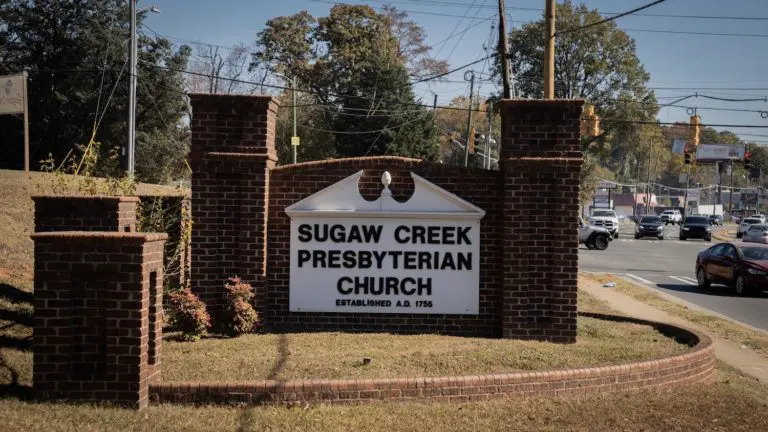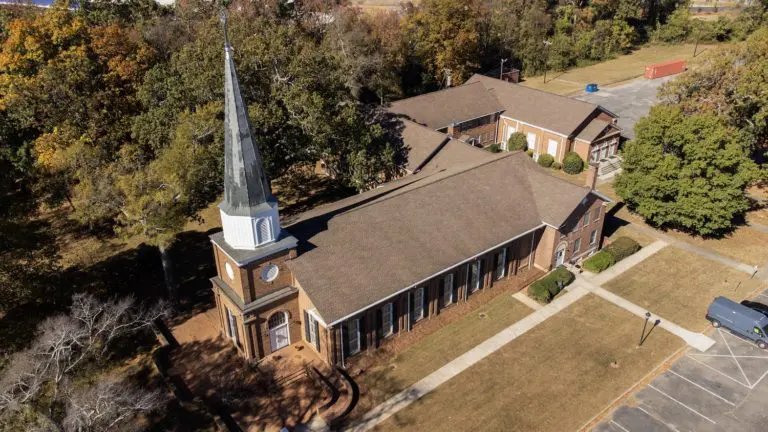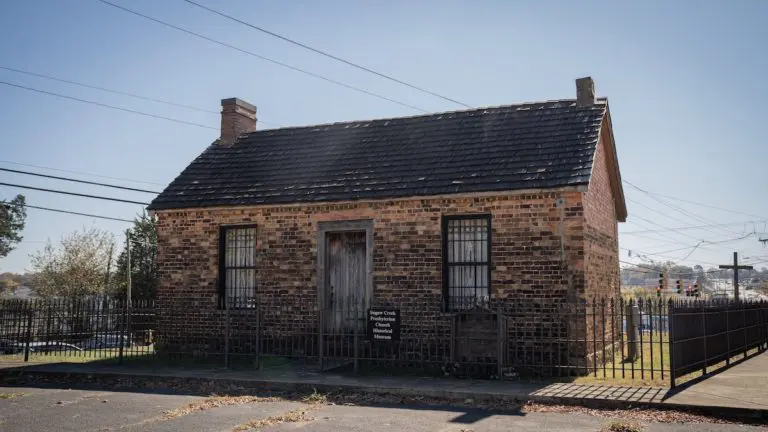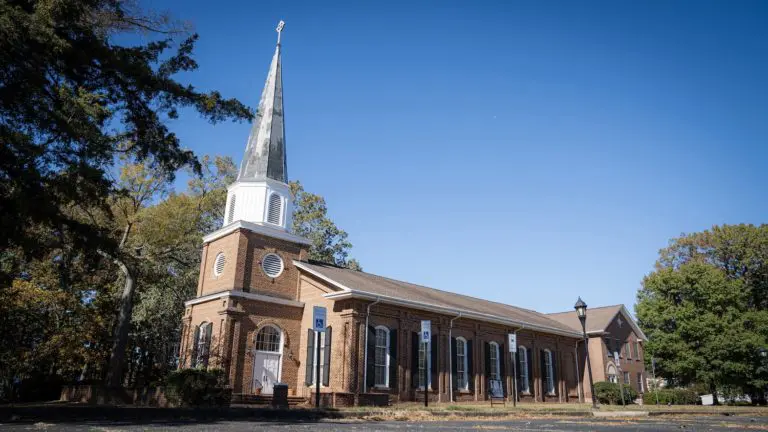Sugaw Creek Presbyterian Church is the oldest church in Mecklenburg County. Established in 1755, it is located in at 101 W. Sugar Creek Rd in Charlotte, North Carolina. Here you can discover the origins of the church and its unusual name.
Over the years, there have been different spellings of Sugaw. Sugaw Creek Presbyterian used to be Sugar Creek Presbyterian. It was spelled Sugar at its founding in 1755; however, in 1924, someone at the Church decided to spell it Sugaw, and it has been that way ever since. The origins of the name of the Church and the creek can be traced back to the Sugeree people. The Sugeree people were a tribe of indigenous people that lived on and near Sugar Creek in what is today Mecklenburg County, North Carolina and York County, South Carolina.
Sugeree means “people of the river of water which is unfit to drink.” Some historians believe Sugaw means a “collection of huts.” One of the first mentions of the Sugeree people was by John Lawson, a colonial Surveyor-General who wrote about his journey through North and South Carolina. Lawson noted they passed through many great towns and settlements that belonged to the Sugeree people with no barren land being found there. Lawson said that there was plenty of free-stone and good timber. Between the Sugeree’s contact with European colonizers, which brought disease, and the American Indian Wars, the Sugeree people’s numbers dwindled. Ultimately the remainder of the tribe joined the Catawba.
In 1758, shortly after organizing, Sugaw Creek Presbyterian Church called upon Alexander Craighead, a radical pastor from Pennsylvania, to preach. As a pastor, Craighead was extraordinarily passionate and was not afraid to call out his fellow ministers. Craighead was also an ardent supporter of the (First) Great Awakening, a revival of religious piety that swept through the British American colonies between the 1730s and 1770s. Some believe the Great Awakening influenced the Revolutionary War by encouraging sentiments of nationalism and individual rights.
Craighead traveled with George Whitefield, perhaps the most famous of the Great Awakening ministers. Craighead was not only radical in the pulpit but also in his politics. He actively opposed and encouraged his congregation to resist and not cooperate with the British government. Craighead openly critiqued King George III and the Church of England. Alexander Craighead had a lasting legacy at Sugaw Creek Presbyterian Church through his many descendants who worshipped there. His last name was also one of the earliest known names of Huntersville, North Carolina.
The Craighead family continued to have a connection to Sugaw Creek Presbyterian through Samuel Craighead Caldwell, grandson of Alexander Craighead. The Church grew with Samuel Craighead as its pastor. Craighead and Sugaw Creek Presbyterian Church played a part in birthing other local Presbyterian churches like First Presbyterian of Charlotte, Paw Creek Presbyterian, and Mallard Creek Presbyterian. The Church also worked with Hopewell and Second Presbyterian. Sugaw Creek Presbyterian Church is beloved by its members; some of the congregation are multi-generational members, and the Church continues to be active in the community.







